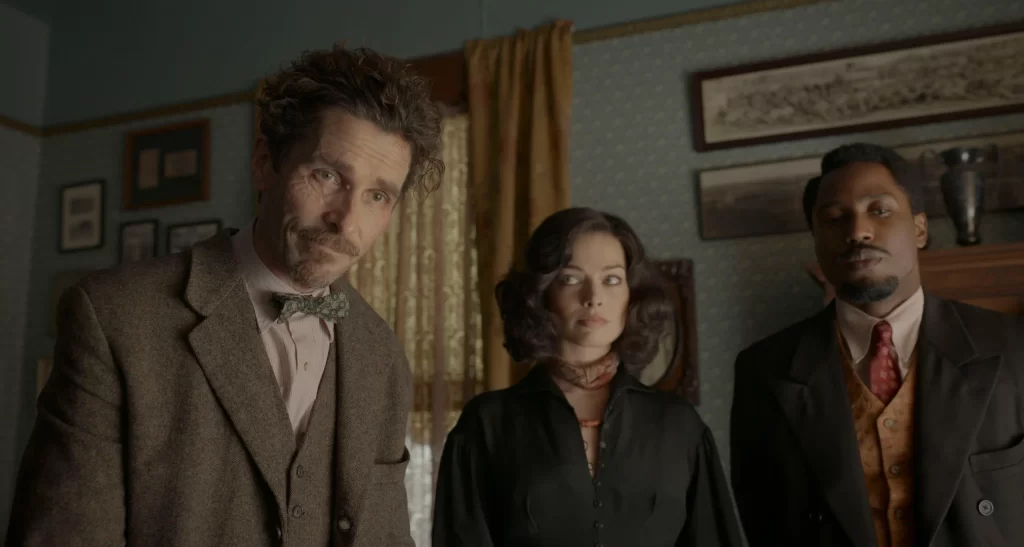
Throughout Amsterdam, things break: an ugly teapot, a bird’s egg, a man’s optic nerve, a loveless marriage. Yet because it’s the work of David O. Russell, the movie views such destruction not with sadness but with opportunity. A grinning carny barker whose attractions are warped and trampled human feelings, Russell savors goofy misfits, with their thwarted dreams and foiled scams. He likes to break things—and people—apart so that he can put them back together.
He doesn’t always succeed. Russell’s career is wildly uneven, not to mention polarizing; survey critics, and you’re unlikely to find consensus on his three best films. (For the record, they are Three Kings, Silver Linings Playbook, and American Hustle.) Amsterdam, Russell’s first feature in seven years, showcases the director at his best and worst; it’s full of vibrant verve and stylish flair and ragged writing and quite a bit of nonsense. (His last picture, Joy, was similarly bumpy, suggesting that he’s grown consistently inconsistent.) In fact, the main characters here repeatedly improvise what they call “a nonsense song,” coming together to warble an off-key melody accompanied by incomprehensible lyrics, and it works handily as metaphor for the movie itself: meandering and patchy, yet oddly charming and full of life.
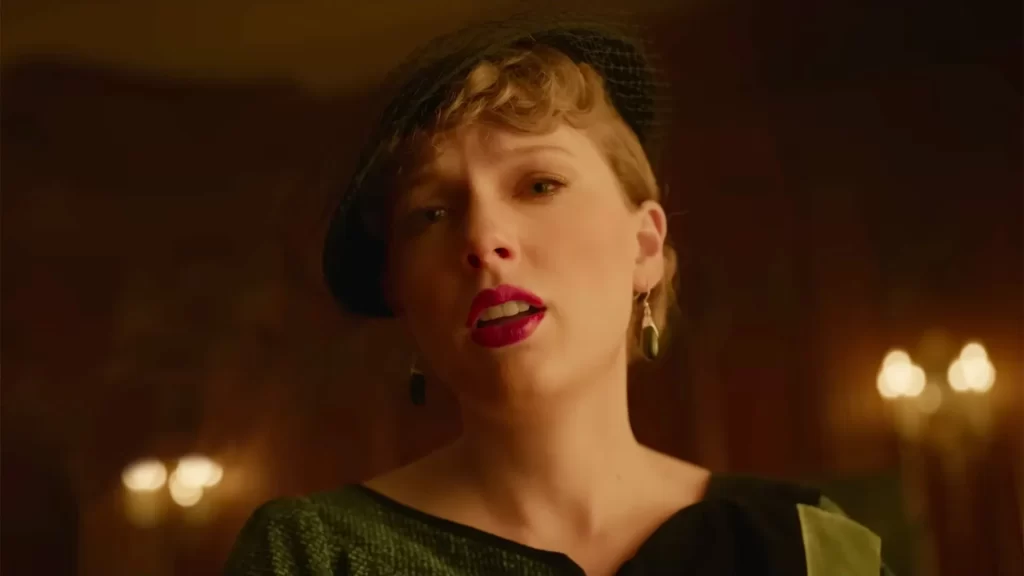
It’s full of other things as well, including impressive actors; Russell’s personal reputation may have darkened over the years (thanks to reports of abusive on-set behavior, coupled with the alleged sexual assault of his niece), but it hasn’t prevented him from assembling a hugely talented company that comprises Oscar nominees, movie stars, character actors, and celebrities. When the weakest performance in your movie comes from Robert De Niro, you know you’ve accomplished something, however strange.
The real star of the show, as is often the case in Russell’s films, is Christian Bale, who justly won an Academy Award for his electrifying turn in The Fighter, then followed that with an even richer performance in American Hustle. He repeats the feat here as Burt Berendsen, a twitchy doctor armed with a glass eye, a New York accent, and a streak of hopeless romanticism. Bale is often an intense screen presence, but Russell knows how to leverage his loose-limbed comic gifts and his surprising capacity for warmth. Burt is a classic Russell hero, which is to say he’s a complete mess, constantly falling down or getting knocked out or stumbling into one calamity or another. His personal relationships are similarly frayed—he’s mostly smitten with his estranged hot-and-cold wife, Beatrice (a splendid Andrea Riseborough), though he also bungles a potential connection with a fellow medical professional, Irma (Zoe Saldaña)—but there’s a sweetness to his misfortune, and Bale transforms Burt’s jumpy tics into an enchanting portrait of helplessness and desire. He’s wonderful.
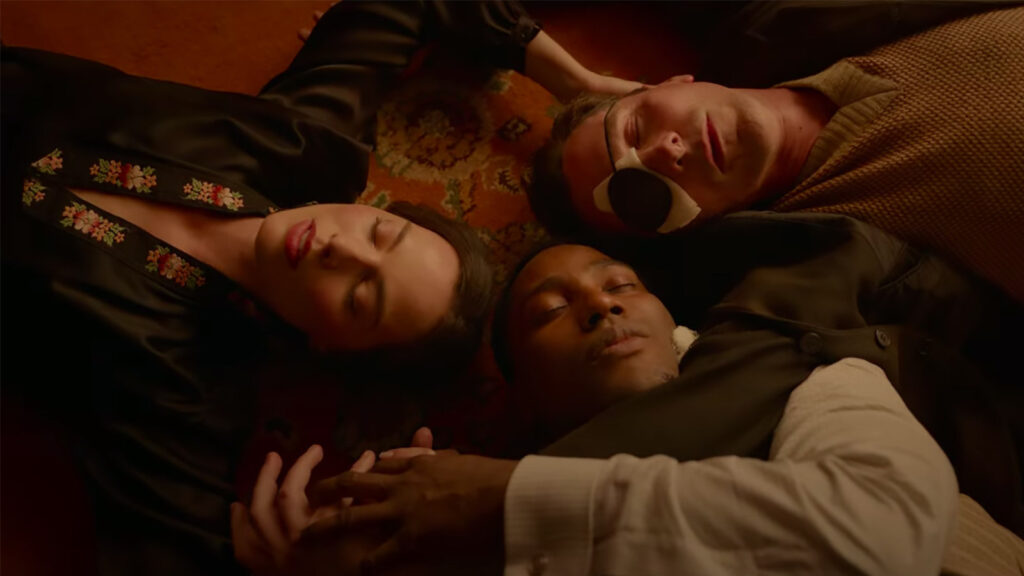
So are lengthy stretches of Amsterdam, even if the movie ultimately buckles under its own mass. Based on the Business Plot (it opens with the title card, “A lot of this really happened,” similar to the text that preceded American Hustle), it begins in 1933, where Burt and his best friend, Harold Woodman (John David Washington), are recruited by a general’s daughter (Taylor Swift, perfectly fine) to investigate the recent death of her father (Ed Begley Jr.—even the bit players here are recognizable). Before long, there’s a murder, and Burt and Harold are on the run, as is Russell, who whooshes the period back to 1918 when Burt—at the gentle but insistent urging of Beatrice and her moneyed parents—abandons his Park Avenue practice to serve in the Great War. It’s there in the bloody Argonne forest where he first befriends Harold, along with a nurse named Valerie (Margot Robbie), who tends to their war wounds—Burt loses his right eye, Harold a chunk of his left cheek—and then spirits them to Holland for a well-earned convalescence.
The early scenes centering on these three nascent bohemians represent Amsterdam at its brightest and most buoyant. Evoking the tender triadic intimacy of Jules and Jim, Russell temporarily subdues his manic temperament and instead focuses on his characters, observing the flourishing of a snug, beautiful bond. This isn’t to suggest that his filmmaking is sedate, but despite the constant camera movements, there’s nothing sloppy about his technique; instead he applies an invisible discipline, so that his relentless energy never feels hectic. It’s controlled chaos.
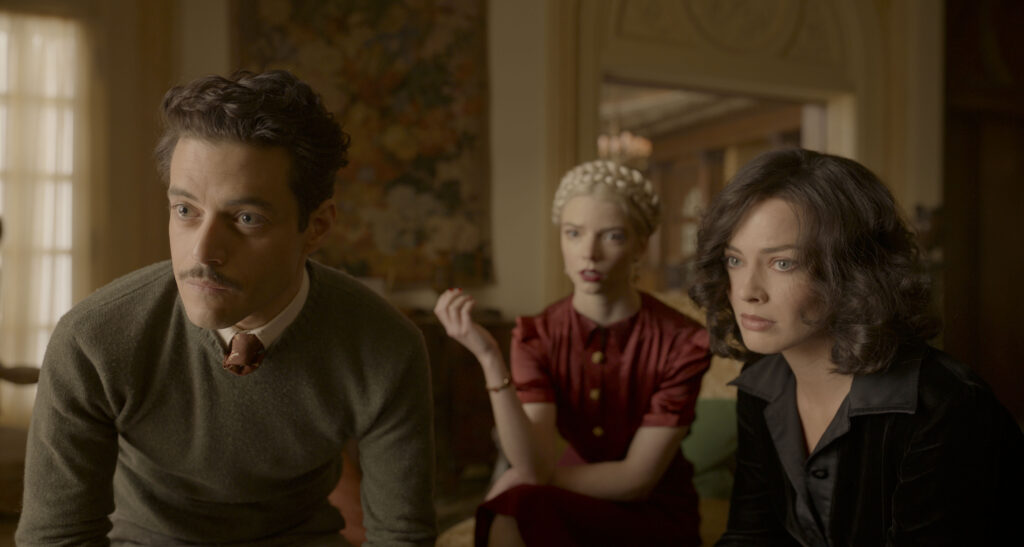
That control slackens over time, especially once Burt returns to the States and the script flashes back (forward) to the dawn of FDR’s presidency. Shifting from hangout comedy to spy caper (with plenty of other genres sprinkled in), the movie revisits previously glimpsed faces and reintroduces a great many new ones—a captain of industry (Rami Malek) and his glamorous but severe wife (Anya Taylor-Joy, slicing through the chaff); a wary confederate (Chris Rock, out of place); a sympathetic detective (Matthias Schoenaerts) and his agitated partner (Alessandro Nivola); a pair of ornithologically inclined spies (Mike Myers and Michael Shannon)—then revels in mashing them together and mussing everybody’s hair. The craft remains resplendent—the period production and costume design is gorgeous (Taylor-Joy in particular dons several stunning hats and dresses), and while the color palette is an odd mix of reds and browns, Russell routinely supplies striking images, such as the low-angle shot of three mourners looking down at a dead body (the great cinematographer Emmanuel Lubezki emerges from a lengthy hiatus)—but the freneticism of the plot eventually grows overwhelming.
The word “plot” has multiple meanings here, as Amsterdam chronicles a nefarious conspiracy whose aim is no less than to overthrow American democracy and replace it with brutal fascism. To combat these sinister forces—who are branded the Council of Five, and who have allied themselves with a certain burgeoning nationalist movement in Germany—Burt, Harold, and Valerie must rely on their wits, their fortitude, and their powers of earnest persuasion. Specifically, they must win the favor of the famed General Dillenbeck (De Niro), a potential pawn in a very dangerous game of geopolitical intrigue.
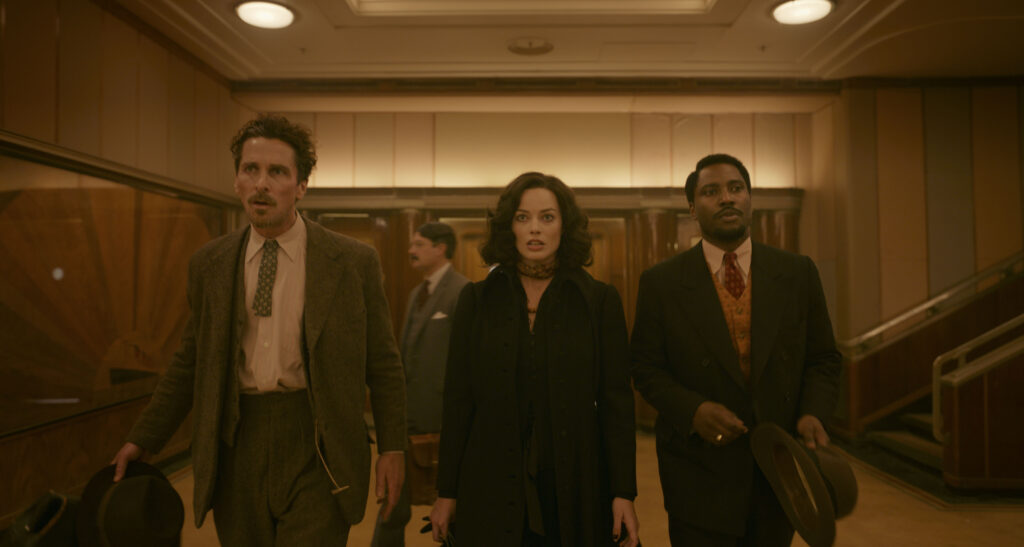
De Niro has a healthy history of his own with Russell—with apologies to fans of The Irishman, I’d rank his brittle performance in Silver Linings Playbook as his best of this century—but the screen legend is oddly off-kilter here, as though he’s wandered onto the set from a different shoot. Perhaps it’s because he’s been assigned the role of Moral Mouthpiece, issuing clumsy statements about the sanctity of fair elections and the nobility of an incorruptible conscience. Such stolid speechifying resides uneasily within Russell’s careening universe, and while there’s nothing wrong with a filmmaker smuggling an urgent political message inside a rambunctious comedy (“You can’t fight in here, this is the War Room!), the director lacks the dexterity needed to harmonize his themes with his storytelling. (Against all odds, the allegory of The Batman proved more potent.)
This may just be a consequence of Russell having too much damn fun, and frankly, there are worse cinematic sins than a glitzy, star-laden picture enjoying itself. At one point during the busy, sloppily choreographed climax, with its ostensibly fraught dramatic stakes—a putsch seems inevitable, unless our heroes intervene—several of the characters decide to sharpen their senses by taking amphetamine eyedrops. It’s a plainly ridiculous moment in a faintly ridiculous movie, and (like much else) it doesn’t make a whole lot of sense, but it also speaks to Amsterdam’s giddily reckless spirit. It’s stuffed with dialogue and violence and heart and swill, and if its freewheeling emotions often fail to connect with its bustling action, it nevertheless acquires an underlying decency; Russell may be playful, but he regards his lovable goofballs with genuine affection. There’s no authentic drama on display here—just the implausible, agreeable fantasy that a trio of foolish, steadfast strivers can wield their humanity to save the world.
Grade: B-
Jeremy Beck is the editor-in-chief of MovieManifesto. He watches more movies and television than he probably should.
